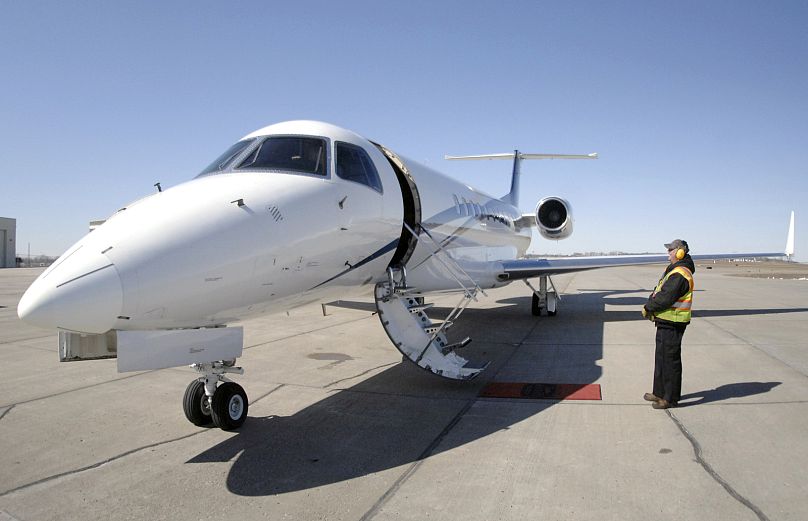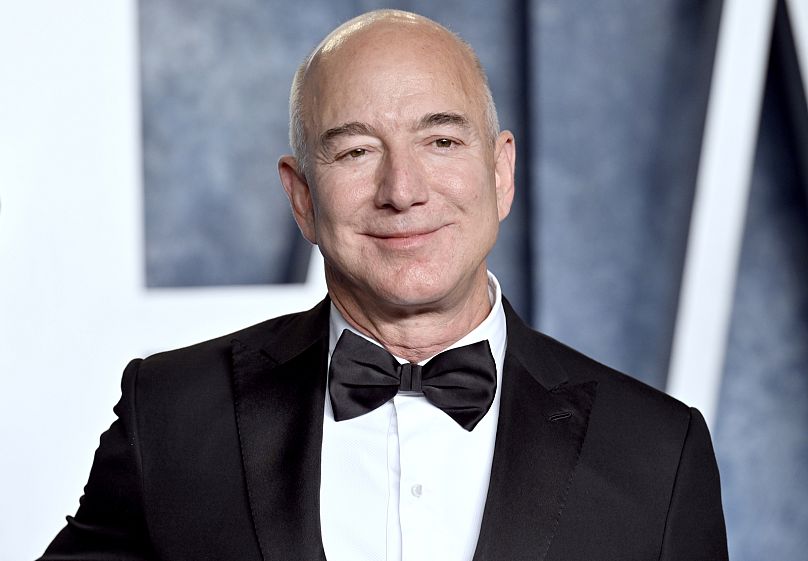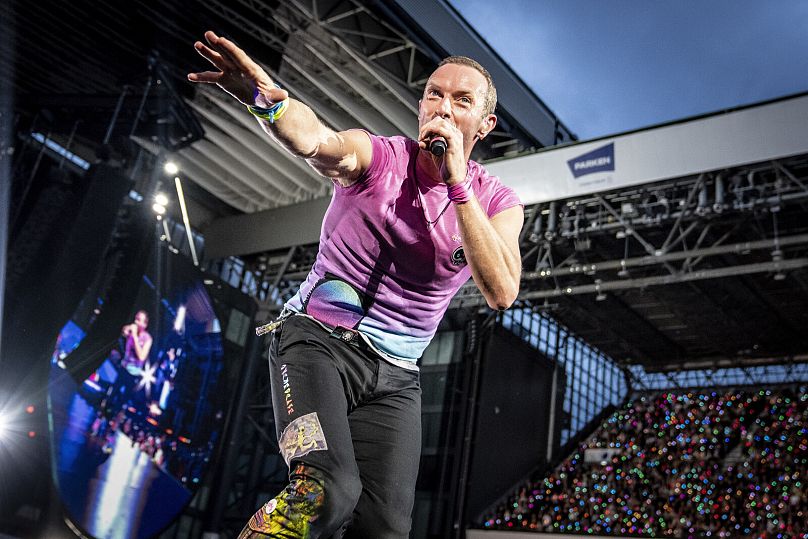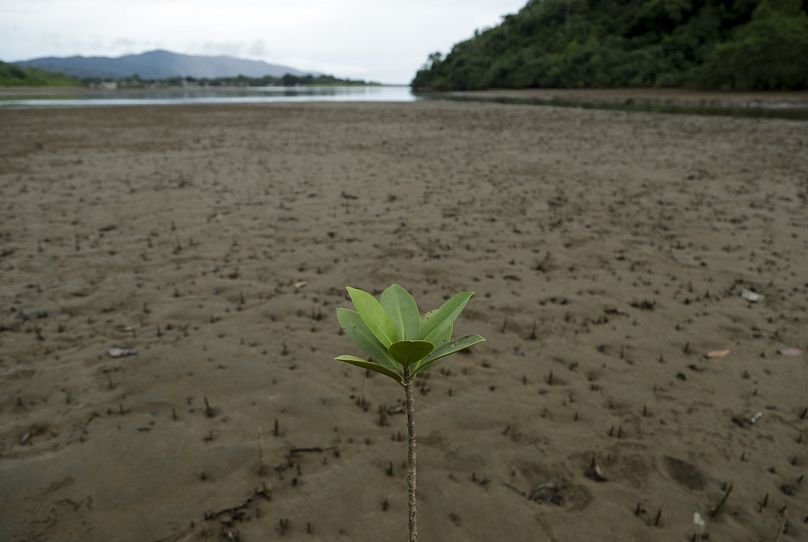As a slew of A-listers are getting called out for their emissions, many are resorting to carbon offsetting. But is the practice effective in the fight against climate change?
Hollywood’s in hot water.
 ADVERTISEMENT
ADVERTISEMENT
 ADVERTISEMENT
ADVERTISEMENT
While many of its biggest stars have lent their voices and faces to the fight against climate change, others have become the poster children for wasteful living and unregulated emissions.
For years running, A-listers have been topping the naughty lists for private jet usage, going head-to-head with oligarchs and oil tycoons.
But now, celebrities have found a solution to contain the environmental (and PR) damage: buying credits to offset their emissions.
As offsetting continues to gain traction, is it the right path to a greener world? Or a way to greenwash climate sins? Euronews Green investigates.
How are celebrities offsetting their emissions?
Since the dawn of aviation, the glitterati and their bankrollers have picked the most exclusive mode of transportation - private jets - to avoid rubbing shoulders with common folk.
It comes as little surprise that a damningly disproportionate amount of carbon dioxide emissions are produced by society’s richest few. Indeed, a study by the Institute for Policy Studies (IPS) showed that, in the US, roughly 50 per cent of aviation-related emissions are produced by the first percentile of wealthiest individuals.
But while the 1 per cent is largely constituted by anonymous business magnates and hedge fund babies, a subset includes many of our most beloved stars, provoking a more visceral reaction.
American singer-songwriter Taylor Swift, who has been enjoying a spell of unparalleled success after embarking on her record-breaking Eras Tour, topped the list in 2022.
According to sustainability marketing firm Yard, she allegedly emitted 8,300 metric tonnes that year alone (1,184 times an average person’s footprint) - a claim contested by her rep. While her emissions reportedly decreased in 2023, some sources have still listed her among the year’s most prolific private jet users.
Swift, however, is far from the only A-lister to be implicated.
In a study conducted by UK newspaper The Guardian, 200 celebrities and tycoons produced an estimated 415,518 tonnes of CO2 from 44,739 private jet trips in 2023 alone - the equivalent of roughly 40,000 Britons’ emissions in an average year.
Implicated are a range of renowned celebrities, from Tesla founder Elon Musk, to UK rock veterans The Rolling Stones.
“The Earth’s temperature is getting hotter and hotter. Sea levels are rising, the ice sheets are shrinking,” said reality mega-star Kim Kardashian in a recent, tongue-in-cheek campaign for her new lingerie line. But if their transportation habits are anything to go by, she and her billionaire half-sister, Kylie Jenner, are also playing their part, as they both have been named among the biggest private jet users.
In a time in which a large carbon footprint is reasonably seen as a stain on a public figure’s reputation, Hollywood stars have gone to great measures to clear their contrails - and let the wider public know.
Swift's private jet usage has come under particularly intense scrutiny. In response, her rep claimed she had “purchased more than double the carbon credits needed to offset all tour travel.”
Tech giant Bill Gates and Amazon founder Jeff Bezos have cited carbon offsetting when criticised back in 2021 for a lavish superyacht birthday bash in which guests were flown in on helicopters.
And back in 2019, British singer-songwriter Elton John claimed to have offset a trip by Harry and Meghan, the Duke and Duchess of Sussex, to “support [his] commitment to the environment.”
Some, like British band Coldplay’, have attempted to tackle the problem at its root, by reducing their footprint altogether. Their 2023 Music of the Spheres tour directly lowered their carbon emissions by 47 per cent - but offsetting seems to be the more standard practice now.
From renewables to reforestation: carbon offsetting and ‘credits’, explained
Taylor Swift may have helped bring carbon offsetting into the limelight, but the practice has been around for decades. In fact its history dates back to when she was born, 1989, when the first agriforest programme was launched in Guatemala.
Offsetting traditionally involves buying credits certified by a reputable body (government or independent) to fund different initiatives to reduce CO2 in the atmosphere.
These include investing in renewable energy, such as solar, hydro and wind power; reforestation and conservation; and projects intended to help impoverished communities reduce their emissions, such as by providing clean water to families in Ethiopia.
You’ve probably come across this yourself; individuals are often given the choice to offset their flight miles by airlines for example (although only 1-3 per cent of passengers reportedly take up on the offer). Companies also rely on offsetting to reduce their footprint, as well as “insetting” - in which the emission-reducing efforts are made in-house.
As the deadly impacts of climate change become more visible, carbon offsetting has ballooned into a lucrative business, valued at €306.9 billion in 2022. Its market continues to grow, and is estimated to reach over €1.4 trillion by 2028.
Europe has now emerged as a leader in the offsetting field, as the EU’s Emissions Trading System (ETS) has carved its place as the world’s biggest marketplace for carbon credits.
Offsetting: greenwashing, or the answer to a greener world? Experts weigh in
Celebrity emissions may be on a scale larger than we can fully contemplate, but their lifestyles are merely an amplification of our own: all of us have our footprint and contribute to the ongoing climate crisis.
So, is carbon offsetting the way forward?
Most climate scientists don’t seem particularly convinced.
The main trouble is, despite the potential benefits from many of the methods employed in carbon offsetting, it ultimately doesn’t address the root of the issue.
Reforestation, for instance, may be helpful, but there is no guarantee that the new trees planted will be maintained - especially in countries with volatile political landscapes.
Moreover, it’s tricky to assess how much CO2 will actually be absorbed in any given scheme, making offsetting a “last resort” option according to the WWF.
“It’s hard to prove that offsets actually work,” Dr James King, a climate scientist at the University of Sheffield, tells Euronews Green. “The regulation is patchy, and the science shows it's more important to avoid or reduce emissions than try to offset them afterwards.”
“The best thing to do is keep the fossil fuels in the ground,” he adds. “While we do need to remove carbon dioxide from the atmosphere, this task is made harder if there are more carbon emissions to deal with.”
The EU has already taken action to prevent companies from greenwashing their way into the public’s good graces. Last year, the European Parliament voted to ban companies from self-describing as “carbon neutral” through offsets alone.
The evidence is increasingly apparent: the best way to fight climate change is by reducing emissions in the first place. Celebrities are certainly not wholly responsible for a structural issue like climate change - and their attempts to offset their emissions are at least a step in the right direction.
But arguably they should use their platform to preach (and practice) a lower-emission lifestyle, rather than endorsing a lazier cop-out.
“Given that the richest 1 per cent globally are responsible for as much emissions as the poorest 66 per cent, high-profile people who want to set a good example should show how they are reducing their emissions directly,” says King.
“Not by polluting first and trying to fix it afterwards.”






















